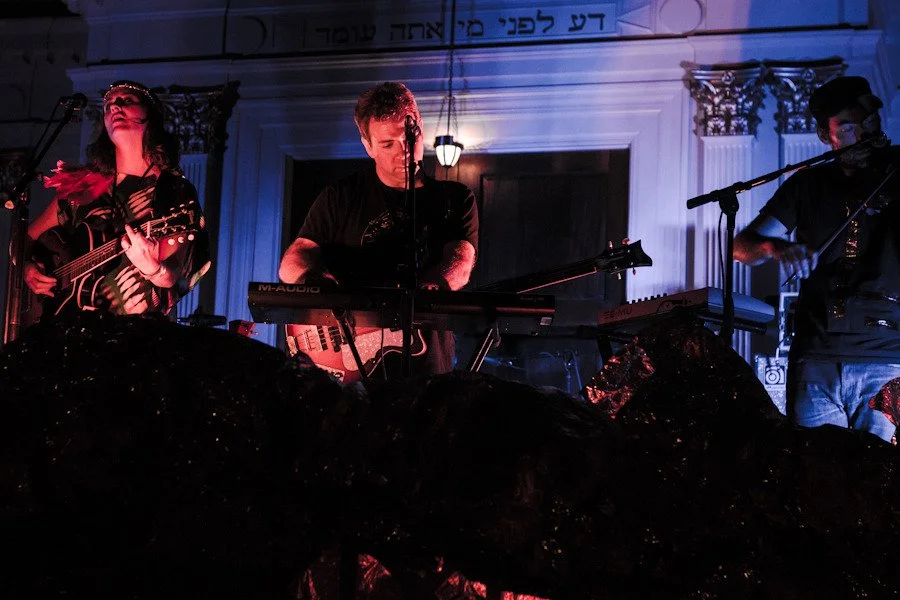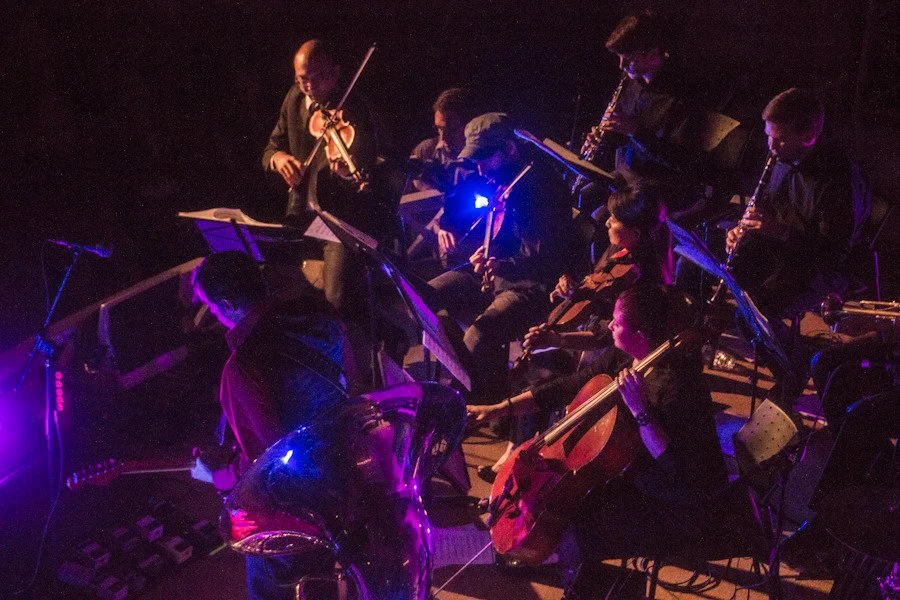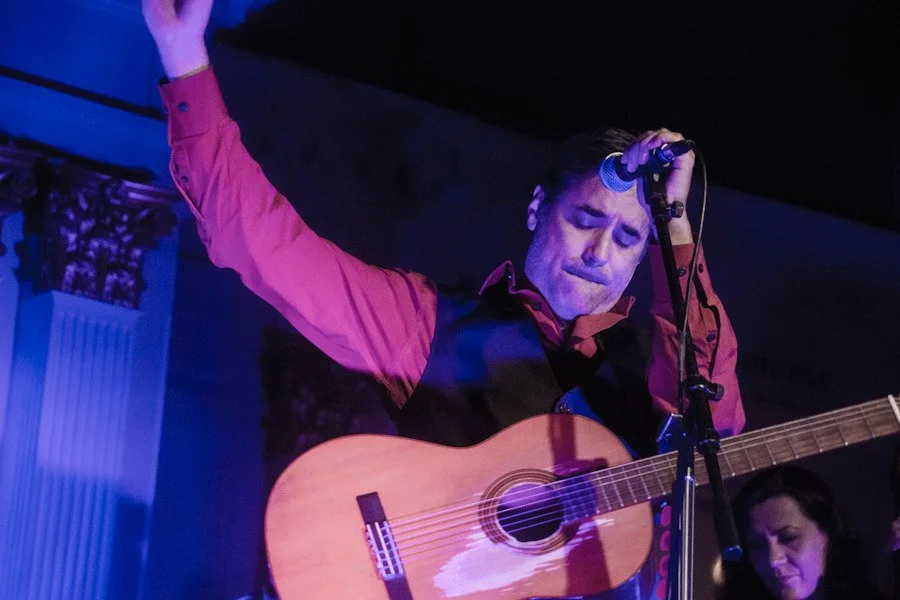LIVE: Devotchka @ Sixth and I - 9/13/12
If your familiarity with DeVotchKa extends only to the Little Miss Sunshine soundtrack and the haunting background noises you hear whilst blowing the heads off your enemies in Gears of War 2, your ears will write you a thank you note if you expand that base of knowledge. Not for the xenophobic, DeVotchKa’s recorded catalog spans the past decade and more parts of the globe than Carmen San Diego, and they brought a traveling circus of multi-instrumentalists to the Sixth & I last Thursday for a world-class evening of music.
Any DeVotchKa review has certain common threads: some mixture of the words “gypsy,” “soaring,” “Eastern European Polka-Rock,” and “George Clooney” is inescapable. Lead singer Nick Urata may be identified for overall handsomeness, an ethereal, soaring voice, and an acoustic guitar with a gaping hole strummed through the body, but the rest of the band is just as noted for live shows full of sophisticated instrumentation and passionate delivery. Is it sophisticated for an audience to cat call well-dressed people carrying stringed instruments and even an oboe into a synagogue? Probably not, but audience and band alike were having a fantastic time from the moment the original four members of DeVotchKa arrived on stage accompanied by 6 additional musicians.
A fully stocked Devotchka performing at Sixth and I last ThursdayThe circus atmosphere catapulted the audience into opener “The Alley,” from last years’s 100 Lovers, followed by a couple of selections from 2008’s A Mad & Faithful Telling. The live version of “The Clockwise Witness” was stripped of middle-eastern and European influences and played with a more traditional main melody, but the song was still uniquely DeVotchKa -- throughout the evening the band toyed with the original structures of some of their more well-known songs, and often the live versions came out better than the studio. For “Along the Way,” the band added back in every influence that had been removed from Clockwise and the song turned into an ultra-huge United Nations of sound. “The Common Good” featured an oboe as the main instrument, which gave the song a straight-up Indian feel, and Urata traded guitar for a bouzouki to finish the effect.
While the addition of violins, cello, an oboe, clarinet, and trumpet obviously created a fuller, richer sound than the band offered when they were at the 9:30 Club in April for an acoustic set with the Magnetic Fields, the downside was that the accompanists sometimes overwhelmed the primary instruments; at times it was even hard to hear Jeanie Schroder on sousaphone (which looks like a tuba crossed with a river innertube), and Urata’s bouzouki was lost all together. While the entire outfit playing together was powerfully moving for most of the night, the strongest moments came when Urata stood at the front of it all, with his battered guitar, and simply wailed about loss and about broken expectations. For “You Love Me,” which is actually about someone who now loves someone else, the sheer heartbreak of the song crept under your skin and you couldn’t help but feel infused with loss. Fortunately the band backed the saddest songs with much more upbeat material, or else the evening may have devolved into a massive lie-down.
Paging Dr. Ross. You're needed in the ER...of our heartMidway through the set DeVotchKa performed the mainly instrumental “Firetrucks on the Boardwalk,” originally recorded for a Patagonia gulf coast restoration fundraiser, and it was a moment that bordered on opulent - every performer on stage had a moment to shine before a few lonesome whooo whooo whoooos floated in to close the song, and then Urata was given his turn on “Undone.” While he may physically resemble Clooney after a three-day bender, Urata’s voice is part Bryan Ferry and part pure unadulterated heartbreak. “Undone” has lyrics that will tear your soul out, and it was delivered perfectly in the venue. Again, DeVotchKa coaxed everyone back off the floor after that with a particularly upbeat rendition of “Queen of the Surface Streets,” the oldest song they pulled out all evening, and the crowd then went berserk for the Spanish-infused “We’re Leaving.”
Closing the set with “Enemy Guns,” Urata’s electric guitar suddenly lost juice and the crowd picked up the slack by clapping along as he made hilarious faces at the useless floor pedal while strumming his silent instrument. A quick trade for his acoustic guitar closed the set, and the band received a well-deserved standing ovation - one of the benefits of performing in a seated venue.
In the four-song encore, two selections came from soundtracks - “I Cried Like a Silly Boy,” from Curse Your Little Heart, was used in “I Love You Phillip Morris” (which Nick Urata scored), and the evening closed with an extra-long version of “How It Ends,” which has been used in, well, everything not already using Sigur Ros‘ “Hoppipolla.” It’s been played everywhere, and a lot of the song’s original intimacy has been trampled by sheer popularity, but it was still a stunning way to end an evening. The entire concert left you walking a little taller, with a saucy twist of the hips, and wishing your life were interesting enough to warrant a DeVotchKa soundtrack of its own.




















